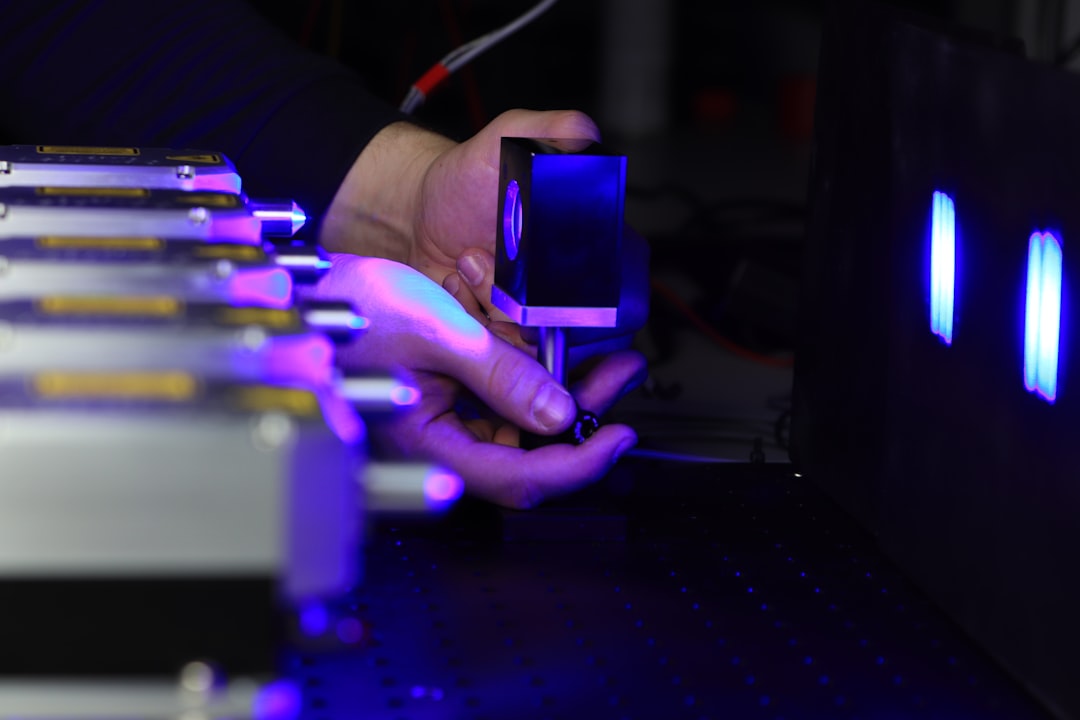Laser hair removal is a popular cosmetic procedure that uses a concentrated beam of light (laser) to remove unwanted hair. The laser targets the pigment in the hair follicle, damaging it and inhibiting future hair growth. This process is effective in reducing and eventually eliminating hair growth in the treated area. The procedure is commonly used on areas such as the legs, underarms, upper lip, chin, and bikini line.
Laser hair removal is a safe and effective method for most skin tones and hair types. However, it is important to note that the effectiveness of the treatment can vary depending on the individual’s skin and hair color. People with darker skin tones often face unique challenges when it comes to laser hair removal, which we will explore in the following sections.
Laser hair removal is a non-invasive procedure that provides long-lasting results. It is a popular choice for individuals looking to reduce the time and effort spent on traditional hair removal methods such as shaving, waxing, and plucking. The procedure is performed by trained professionals and is generally well-tolerated by most individuals. With advancements in technology, laser hair removal has become more accessible and efficient for people with various skin tones and hair types.
Key Takeaways
- Laser hair removal uses concentrated light to target and destroy hair follicles, resulting in long-term hair reduction.
- Dark skin tones pose challenges for laser hair removal due to the risk of skin damage and pigmentation changes.
- Advancements in laser technology, such as longer wavelengths and cooling systems, have made laser hair removal safer and more effective for dark skin tones.
- Safety measures for laser hair removal on dark skin include using appropriate laser settings, conducting a patch test, and seeking treatment from experienced professionals.
- Preparing for laser hair removal on dark skin involves avoiding sun exposure, shaving the treatment area, and following any pre-treatment instructions provided by the practitioner.
- Aftercare for laser hair removal on dark skin may include applying soothing creams, avoiding sun exposure, and following any post-treatment guidelines to promote healing and minimize potential side effects.
- Benefits of laser hair removal for dark skin tones include long-term hair reduction, smoother skin, and the potential to reduce ingrown hairs and irritation associated with other hair removal methods.
Challenges of Laser Hair Removal for Dark Skin Tones
While laser hair removal is effective for most skin tones, individuals with darker skin often face challenges due to the higher levels of melanin in their skin. Traditional laser treatments target the melanin in the hair follicle, which can also inadvertently target the melanin in the surrounding skin. This can result in pigmentation changes, burns, and scarring for individuals with darker skin tones. Additionally, the contrast between the dark skin and the hair follicle can make it more difficult for the laser to effectively target the hair without affecting the surrounding skin.
Another challenge for individuals with darker skin tones is the risk of post-inflammatory hyperpigmentation (PIH). This condition can occur as a result of the skin’s response to the laser treatment, leading to dark spots or patches on the skin. This risk makes it crucial for individuals with darker skin tones to seek out experienced professionals who are knowledgeable about treating darker skin safely and effectively.
Advancements in Laser Technology for Dark Skin Tones
In recent years, there have been significant advancements in laser technology to address the challenges faced by individuals with darker skin tones. One of the most important developments is the introduction of longer wavelength lasers, such as Nd:YAG and diode lasers. These lasers are able to penetrate deeper into the skin, bypassing the melanin in the epidermis and targeting the hair follicle more effectively. This reduces the risk of damaging the surrounding skin and minimizes the chances of pigmentation changes or burns.
Another advancement in laser technology for dark skin tones is the use of cooling devices or techniques to protect the skin during treatment. These cooling methods help to minimize discomfort and reduce the risk of adverse effects on the skin. Additionally, newer laser systems are equipped with adjustable settings that allow for customized treatment based on the individual’s skin type and hair color. This level of customization ensures that the laser can effectively target the hair follicle while minimizing the risk of damage to the surrounding skin.
Safety Measures for Laser Hair Removal on Dark Skin
| Safety Measures for Laser Hair Removal on Dark Skin |
|---|
| 1. Use of appropriate laser technology for dark skin tones |
| 2. Skin cooling techniques to minimize discomfort and reduce the risk of burns |
| 3. Test patching to assess skin reaction and determine the appropriate laser settings |
| 4. Experienced and trained professionals to perform the procedure |
| 5. Post-treatment care instructions to minimize the risk of complications |
When considering laser hair removal for dark skin, it is essential to prioritize safety and seek out experienced professionals who are knowledgeable about treating darker skin tones. Safety measures for laser hair removal on dark skin include conducting a thorough assessment of the individual’s skin type and medical history before proceeding with treatment. This assessment helps to determine the most suitable laser system and settings for the individual’s specific needs.
Additionally, it is important for individuals with darker skin tones to avoid sun exposure and tanning beds before and after laser hair removal treatments. Sun exposure can increase the risk of pigmentation changes and burns, so it is crucial to protect the skin from UV radiation. Using broad-spectrum sunscreen and wearing protective clothing can help minimize the risk of adverse effects from sun exposure.
Furthermore, individuals with darker skin tones should closely follow post-treatment care instructions provided by their healthcare provider. This may include using gentle skincare products, avoiding harsh exfoliation, and keeping the treated area protected from irritants. By following these safety measures, individuals can minimize the risk of adverse effects and achieve optimal results from their laser hair removal treatments.
Preparing for Laser Hair Removal on Dark Skin
Before undergoing laser hair removal on dark skin, it is important to prepare for the treatment to ensure safety and effectiveness. One crucial step in preparation is to schedule a consultation with a qualified professional who has experience treating darker skin tones. During the consultation, the professional will assess the individual’s skin type, hair color, and medical history to determine the most suitable approach for laser hair removal.
It is also important to avoid sun exposure and tanning beds in the weeks leading up to the laser hair removal treatment. Sun exposure can increase the risk of adverse effects such as pigmentation changes and burns, so it is crucial to protect the skin from UV radiation. Using broad-spectrum sunscreen and wearing protective clothing can help minimize these risks.
Another aspect of preparation for laser hair removal on dark skin is to discontinue any hair removal methods that involve plucking or waxing. These methods can disrupt the hair growth cycle and make it more difficult for the laser to effectively target the hair follicle. Instead, individuals may be advised to shave the treatment area before their laser hair removal session to ensure that the hair follicles are intact and accessible.
Aftercare for Laser Hair Removal on Dark Skin

After undergoing laser hair removal on dark skin, it is important to follow specific aftercare guidelines to promote healing and minimize the risk of adverse effects. One crucial aspect of aftercare is to keep the treated area protected from sun exposure. Sun exposure can increase the risk of pigmentation changes and burns, so it is essential to use broad-spectrum sunscreen and wear protective clothing when outdoors.
Additionally, individuals should avoid harsh exfoliation or abrasive skincare products in the treated area. These products can irritate the skin and disrupt the healing process following laser hair removal. Instead, individuals may be advised to use gentle skincare products and moisturizers to keep the skin hydrated and promote healing.
It is also important to attend any follow-up appointments scheduled by the healthcare provider to monitor progress and address any concerns. These appointments allow the professional to assess the results of the treatment and provide further guidance on aftercare if needed. By following these aftercare guidelines, individuals can promote healing and achieve optimal results from their laser hair removal treatments.
Benefits of Laser Hair Removal for Dark Skin Tones
Despite the challenges associated with laser hair removal for dark skin tones, there are numerous benefits to undergoing this procedure. One of the primary benefits is long-lasting hair reduction in the treated areas. Laser hair removal targets the hair follicles, leading to a significant reduction in hair growth over time. This can save individuals time and effort spent on traditional hair removal methods such as shaving or waxing.
Another benefit of laser hair removal for dark skin tones is improved confidence and self-esteem. Unwanted hair growth can be a source of insecurity for many individuals, and laser hair removal provides a long-term solution for reducing this concern. By achieving smooth, hair-free skin, individuals can feel more confident in their appearance and enjoy greater self-esteem.
Furthermore, laser hair removal offers convenience and cost savings in the long run. While there may be an initial investment in undergoing laser treatments, the long-term reduction in hair growth means that individuals will spend less time and money on traditional hair removal methods over time. This makes laser hair removal a practical and cost-effective solution for managing unwanted hair growth.
In conclusion, laser hair removal is a popular cosmetic procedure that offers long-lasting results for individuals with various skin tones and hair types. While there are unique challenges associated with treating darker skin tones, advancements in laser technology have made this procedure safer and more effective for individuals with darker skin. By prioritizing safety measures, preparing for treatment, following aftercare guidelines, and seeking out experienced professionals, individuals with darker skin tones can achieve optimal results from their laser hair removal treatments. The numerous benefits of laser hair removal make it a valuable option for managing unwanted hair growth and improving confidence for individuals with dark skin tones.
If you have dark skin tones and are considering laser hair removal, it’s important to understand the potential risks and benefits. In a recent article on inlaserhairremoval.com, the author discusses the effectiveness of laser hair removal on dark skin tones and provides valuable insights into the process. Understanding the nuances of laser hair removal for darker skin tones can help you make an informed decision about whether this treatment is right for you.
FAQs
What is laser hair removal?
Laser hair removal is a cosmetic procedure that uses a concentrated beam of light (laser) to remove unwanted hair. The laser targets the pigment in the hair follicle, damaging it and inhibiting future hair growth.
Is laser hair removal safe for dark skin tones?
Yes, laser hair removal can be safe for dark skin tones when performed by a skilled and experienced practitioner using the appropriate laser technology. It is important to use a laser that is specifically designed for dark skin to minimize the risk of pigmentation changes or burns.
What are the potential risks for dark skin tones undergoing laser hair removal?
The potential risks for dark skin tones undergoing laser hair removal include hyperpigmentation (darkening of the skin), hypopigmentation (lightening of the skin), and burns. These risks can be minimized by using the appropriate laser technology and ensuring the practitioner has experience working with dark skin.
What type of laser is best for laser hair removal on dark skin tones?
For dark skin tones, it is best to use a laser with a longer wavelength, such as a Nd:YAG laser. This type of laser can effectively target the hair follicle while minimizing the risk of damaging the surrounding skin.
How many sessions are typically needed for laser hair removal on dark skin tones?
The number of sessions needed for laser hair removal on dark skin tones can vary depending on the individual’s hair type, skin tone, and the area being treated. On average, 6-8 sessions are typically needed to achieve optimal results.
Is laser hair removal permanent for dark skin tones?
Laser hair removal can lead to long-term hair reduction for dark skin tones, but it is not always permanent. Some individuals may experience regrowth over time, and maintenance sessions may be needed to sustain the results.






